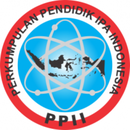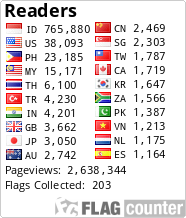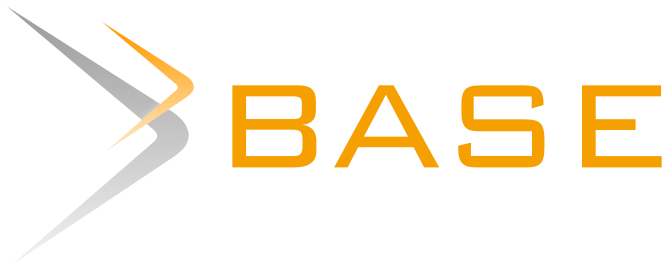The Intersection of AI and Science Education in Indonesia: A Path Forward
A. Kadarohman, Universitas Pendidikan Indonesia, Indonesia
S. Anwar, Universitas Pendidikan Indonesia, Indonesia
Abstract
Keywords
Full Text:
PDFReferences
Alzubaidi, L., Zhang, J., Humaidi, A. J., Al-Dujaili, A., Duan, Y., Al-Shamma, O., Santamaría, J., Fadhel, M. A., Al-Amidie, M., & Farhan, L. (2021). Review of deep learning: concepts, CNN architectures, challenges, applications, future directions. Journal of Big Data, 8(1). https://doi.org/10.1186/s40537-021-00444-8
Baharum,2023. A. Future Trends of Science and Education: The Use of AI in The New World. Theme: Future Trends of Science and Education: The Use of Artificial Intelligence in the New World, 2962, 253
Baskara, F. R. (2022) Interrogating AI-Driven Professional Development in Higher Education: A Quad-Theoretical Analysis. Theme: Future Trends of Science and Education: The Use of Artificial Intelligence in the New World, 2962, 99
Boateng, G., John, S., Boateng, S., Badu, P., Agyeman-Budu, P., & Kumbol, V. (2023). Real-World Deployment and Evaluation of Kwame for Science, An AI Teaching Assistant for Science Education in West Africa. arXiv preprint arXiv:2302.10786
Darajati, M. R., Reswari, R. A., & Yenny, O. (2023). The Adaptation Of Artificial Intelligence (Ai) In Social Science Education: Opportunities And Threats.
https://doi.org/10.33369/j_bengkoelenjust.v12i1.30001
Darmaji, D., Kurniawan, D. A., & Irdianti, I. (2019). Physics education students’ science process skills. International Journal of Evaluation and Research in Education , 8(2), 293–298. https://doi.org/10.11591/ijere.v8i2.16401
Firdaus, M. F., Nugraha Wibawa, J., & Rahman, F. F. (2023). Utilization of GPT-4 to Improve Education Quality Through Personalized Learning for Generation Z in Indonesia. IT FOR SOCIETY, 08(01).
Firmansyah, K. (2023). Increasing Reading And Creative Thinking Skills To Face The Threat Of Ai In The Modern Digital Era.
Gunawan, K. D. H., Liliasari, L., Kaniawati, I., & Setiawan, W. (2021). Implementation of Competency Enhancement Program for Science Teachers Assisted by Artificial Intelligence in Designing HOTS-based Integrated Science Learning. Jurnal Penelitian Dan Pembelajaran IPA, 7(1), 55. https://doi.org/10.30870/jppi.v7i1.8655
Hassani, H., Silva, E. S., Unger, S., TajMazinani, M., & Mac Feely, S. (2020). Artificial Intelligence (AI) or Intelligence Augmentation (IA): What Is the Future? AI (Switzerland), 1(2). https://doi.org/10.3390/ai1020008
Heeg, D. M., & Avraamidou, L. (2023). The use of Artificial intelligence in school science: a systematic literature review. In Educational Media International (Vol. 60, Issue 2, pp. 125–150). Routledge. https://doi.org/10.1080/09523987.2023.2264990
Huang, J., Saleh, S., & Liu, Y. (2021). A review on artificial intelligence in education. Academic Journal of Interdisciplinary Studies, 10(3), 206–217. https://doi.org/10.36941/AJIS-2021-0077
IB. (2019). Academic integrity policy.
Jiménez-García, E., Orenes-Martínez, N., & López-Fraile, L. A. (2024). Pedagogy Wheel for Artificial Intelligence: adaptation of Carrington's Wheel. RIED-Revista Iberoamericana de Educación a Distancia, 27(1).
Lo, C. K. (2023). What Is the Impact of ChatGPT on Education? A Rapid Review of the Literature. In Education Sciences (Vol. 13, Issue 4). MDPI. https://doi.org/10.3390/educsci13040410
Majeed, M. (2023). Predicting the Future of Education in the Light of Artificial Intelligence. In Digital Transformation in Education: Emerging Markets and Opportunities (pp. 173–188). Bentham Science Publishers. https://doi.org/10.2174/9789815124750123010014
Mclaren, B. M., Herckis, L., Teffera, L., Branstetter, L., Rose, C. P., Sakr, M., Kisow, M., Reis, R., Rinsem, M., Alenius, M., & Miller, L. (n.d.). Community College Information Technology Education: Curriculum Mapping, a Learning Science Framework, and AI Learning Technologies.
Michael Reskiantio Pabubung. (2021). Epistemologi Kecerdasan Buatan (AI) dan Pentingnya Ilmu Etika dalam Pendidikan Interdisipliner. Jurnal Filsafat Indonesia.
Mohsienuddin Mohammad, S. (2023). Novateur Publications International Journal Of Innovations In Engineering Research And Technology [Ijiert] Artificial Intelligence In Information Technology.
Mundhe Rayat Shikshan Sanstha, E., Joshi, S. M., Kumar, A., & Professor, A. (2023). The Impact of Artificial Intelligence and Data Science for Business Management The Impact of Artificial Intelligence and Data Science for Business Management Section A-Research paper The Impact of Artificial Intelligence and Data Science for Business Management. Chem. Bull, 13328–13353. https://doi.org/10.48047/ecb/2023.12.si4.1209
Napierala, S., Grey, J., Brinda, T., & Gryl, I. (2022, August). What Type of Leaf is It?–AI in Primary Social and Science Education. In IFIP World Conference on Computers in Education (pp. 233-243). Cham: Springer Nature Switzerland.
Neumann, M. (2019). AI education matters. AI Matters, 5(3), 21–24. https://doi.org/10.1145/3362077.3362083
Park, J., Teo, T. W., Teo, A., Chang, J., Huang, J. S., & Koo, S. (2023). Integrating artificial intelligence into science lessons: teachers’ experiences and views. International Journal of STEM Education, 10(1). https://doi.org/10.1186/s40594-023-00454-3
Peter E. Childs. (2015). Curriculum Development In Science-Past, Present And Future.
Ramdania, D. R., Pradana, H., & Fauzi, F. R. (2023). Analysis of the Utilization of Artificial Intelligence Technology in Learning in Indonesia Learning Alignment. Southeast Asian Journal on Open and Distance Learning, 1(02).
Relmasira, S. C., Lai, Y. C., & Donaldson, J. P. (2023). Fostering AI Literacy in Elementary Science, Technology, Engineering, Art, and Mathematics (STEAM) Education in the Age of Generative AI. Sustainability (Switzerland), 15(18). https://doi.org/10.3390/su151813595
Sarker, I. H. (2021a). Deep Learning: A Comprehensive Overview on Techniques, Taxonomy, Applications and Research Directions. In SN Computer Science (Vol. 2, Issue 6). Springer. https://doi.org/10.1007/s42979-021-00815-1
Sarker, I. H. (2021b). Machine Learning: Algorithms, Real-World Applications and Research Directions. In SN Computer Science (Vol. 2, Issue 3). Springer. https://doi.org/10.1007/s42979-021-00592-x
Sarker, I. H. (2022). AI-Based Modeling: Techniques, Applications and Research Issues Towards Automation, Intelligent and Smart Systems. SN Computer Science, 3(2). https://doi.org/10.1007/s42979-022-01043-x
Sheikh, H., Prins, C., & Schrijvers, E. (n.d.). Mission AI Research for Policy
Snyder, H. (2019). Literature review as a research methodology: An overview and guidelines. Journal of business research, 104, 333-339. Neumann, M. (2019). Ai Education Matters: A First Introduction To Modeling And Learning Using The Data Science Workflow. AI MATTERS, 5(3), 21-24.
Subiyantoro, S., Nyoman, I., Degeng, S., Kuswandi, D., Universitas, S. U., Malang, N., & Semarang, J. (2023). Eksplorasi Dampak Chatbot Bertenaga AI (ChatGPT) Pada Pendidikan: Studi Kualitatif Tentang Manfaat dan Kerugian Exploring the Impact of AI-Powered Chatbots (ChatGPT) on Education: A Qualitative Study on Benefits and Drawbacks. Jurnal_Pekommas_Vol._8_No, 2, 157–168. https://doi.org/10.56873/jpkm.v8i2.5205
Syahrizal, S., Yasmi, F., & Mary, T. (2024). AI-Enhanced Teaching Materials for Education: A Shift Towards Digitalization. International Journal of Religion, 5(1), 203–217. https://doi.org/10.61707/j6sa1w36
Tenório, K. (2023, November). Teaching Artificial Intelligence for Non-computer Science Students in Undergraduate Education: A Competency Framework and an AI Course (Doctoral Consortium). In Proceedings of the 23rd Koli Calling International Conference on Computing Education Research (pp. 1-2).
Wang, J. T. (2023). Virtual labs, Online Exams, and now AI? Professional learning strategies to navigate emergent challenges in Science Education.
Xu, Y., Liu, X., Cao, X., Huang, C., Liu, E., Qian, S., Liu, X., Wu, Y., Dong, F., Qiu, C. W., Qiu, J., Hua, K., Su, W., Wu, J., Xu, H., Han, Y., Fu, C., Yin, Z., Liu, M., … Zhang, J. (2021). Artificial intelligence: A powerful paradigm for scientific research. In Innovation (Vol. 2, Issue 4). Cell Press. https://doi.org/10.1016/j.xinn.2021.100179
Zinchenko, V., Bogdanov, V., Vorobiova, L., & Zubchyk, O. (2022, August). AI risks prevention and critical thinking education: Perspective of open science based sustainable development. In AIP Conference Proceedings (Vol. 2656, No. 1). AIP Publishing.
DOI: https://doi.org/10.21831/jser.v9i1.74872
Refbacks
- There are currently no refbacks.

This work is licensed under a Creative Commons Attribution-ShareAlike 4.0 International License.
Based on a work at https://journal.uny.ac.id/index.php/jser/index
Accepted and published papers will be freely accessed in this website and the following abstracting & indexing databases:
This work is licensed under a Creative Commons Attribution-ShareAlike 4.0 International License.







_-_Copy1.jpg)
.jpg)




